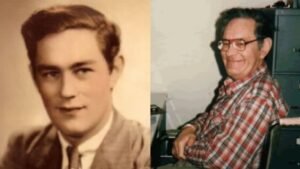Memories define who we are. They influence our choices and shape how we see the world. They help us recognize our past and plan our future. But what happens when these memories are erased or altered? Severance (Apple TV) explores this question in a compelling way. Imagine living a life where work and personal memories are completely separate. Mark and Helly face this dilemma, making us reflect on how memories shape identity.
The Separation of Memories in Severance
In Severance, volunteers choose to forget their lives outside work. Their identity relies only on experiences within the company. Mark and Helly lead us through a suspenseful journey filled with deep questions.
The series highlights the effects of forced forgetting. It also explores the search for truth about who we are. As the story unfolds, the characters face tough ethical and emotional dilemmas. They question the meaning of “being.” One striking moment shows how choices change when memories are altered. Severance asks: Are we more than our memories?
Henry Gustav Molaison: When Memory Fails

Scientists have studied memory for decades. A famous case is Henry Gustav Molaison, known as H.M. After brain surgery to treat seizures, he lost the ability to form new memories. His case helped neuroscience understand memory’s complexity.
In an experiment, researchers asked H.M. to draw the same figure for several days. Though he didn’t recall doing it before, he improved each time. This proved that unconscious memory influences skills, even when conscious memory fails.
In Severance, characters lack memories but are still shaped by past experiences. Even when forgotten, memory leaves its mark.
The Link Between Memory and Identity
Do memories define us? Severance makes us question identity. Is it fixed, or does it change? If memories can be erased, is identity still stable?
Imagine deleting some memories. Would your choices remain the same? Perhaps decisions that once seemed clear would become uncertain. The complexity of identity, as Severance explores, challenges our perception of self.
Linking Severance to H.M.’s case shows that memory and identity are deeply connected. Both deserve deep reflection.
Final Thoughts: Can Identity Exist Without Memory?
Even without clear memories, people function through “implicit memory.” This governs actions and behaviors without conscious awareness. Severance forces us to examine how unseen factors shape identity.
Throughout Severance, we reflect on memory and identity. The show questions what makes us human. It also asks how altered or lost memories affect identity. If memories define us, what happens when they fail?
H.M.’s case shows that losing memory affects one’s ability to connect with the world. Yet, identity is not limited to conscious memories. Future studies in science and philosophy may reveal how memories shape choices and whether our essence transcends memory itself.
Severance raises a key question: How much do memories define us? This is not just fiction. It connects to psychology and neuroscience, making us rethink what forms our true essence.
Posts Recomendados
Carregando recomendações...



